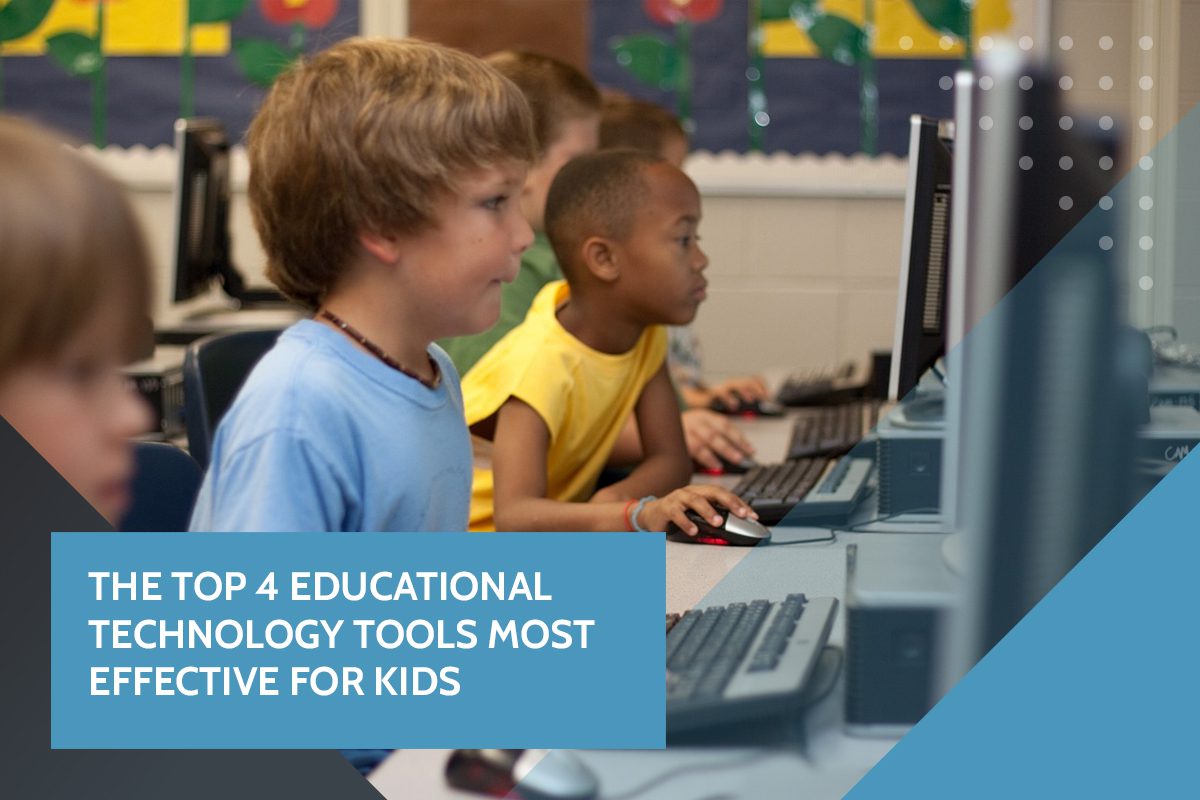The Top 4 Educational Technology Tools Most Effective for Kids

If there’s one thing everyone has realized in 2020, it’s that educational technology tools are the way of the future. And digital learning tools will continue to be more integral to our children’s lives than in any generation before.
Our children are gobbling up content through the Internet and smart devices at an astounding rate; according to the American Academy of Child and Adolescent Psychiatry, children ages 8-12 spend 4-6 hours on screens each day. The rise of screen time comes amid tremendous developments in apps, online programs, and other products that help facilitate learning with technology.
This can be a great thing for today’s young people — but parents and educators must make sure these tools are effective.
Benefits of Educational Technology Tools
Too often, the old guard in any industry are quick to dismiss a revolution on the rise. It’s too newfangled, they say. It will never work. After all, it’s simply not the way things are done. There have been voices across education who have been critical of learning with technology. But there are those that plant their heels in the face of change, and those that ride the wave.
Firstly, educational technology tools extend learning beyond the classroom. Children need tools that will allow them to learn wherever they are. That counts for their actual location, their level of understanding, and even the topics they’re most interested in learning about.
Secondly, many educational technologies allow parents to better understand their children’s academic journey. Whether they’re working on tasks together, viewing a profile of their child’s strengths and interests, or simply watching them as they play, these tools invite parents into their child’s world as the child learns and grows. This will help parents better engage with their children and foster their talents.
Finally, educational technology tools are fun! This is one benefit that should never be overlooked. Children are naturally curious and excellent learners, but they learn best when they are having fun in the process. Today’s children are growing up in a world that’s fully digitized, and most of them have a great interest in and understanding of apps, smartphones, video games, and other technology. Giving them educational tools that speak to their interests is a surefire way to help them learn.
So, which apps are best suited for augmenting your child’s education? Here are some of the best educational tech tools on the market today.

For Mental Health: Smiling Mind
At the start of the last decade, the American Psychological Association released a troubling survey. They reported that about one-fifth of children (including kids as young as 8) experienced “a great deal” of stress on a regular basis. To combat this, many schools have been integrating mindfulness practices into their lessons — and Smiling Mind has helped carry that mission forward.
The Smiling Mind app offers daily guided meditations, including programs aimed at stress management, improved sleep, and greater concentration. They also offer programs directed at children, allowing young people to practice quieting their minds and tending to their mental health at an early age. This is an excellent educational technology tool for any young child who struggles with stress, restlessness, or impulse control issues.

For Reading: Epic
Reading is one of the most important skills a child learns in their formative years. Once a child can read, a whole new world of opportunity is available for them to discover — as long as they’re willing and able to read about it. Access to reading material is part of what makes Epic such a wonderful educational technology tool.
Epic is a digital reading platform, which educators can use to give their students greater access to books. The app boasts a collection of over 40,000 books from the world’s best publishers! Teachers can assign books to students, and children can choose books to read on their own — or have the books read to them, an excellent tool for auditory learners.

For Math: Prodigy
In 2018, TI Education Technology surveyed 1,000 students to gauge their attitudes towards math. The consensus wasn’t great: only 46% of students claimed to love (or even like) the subject, while 24% of students said they hated it. For educators, making math accessible shouldn’t be difficult. Math should be fun — and one way to achieve that is by learning with technology.
Named one of the top apps of 2020, Prodigy is a gamified math lesson that allows students to complete quests and earn rewards as they learn. Not only is this a great way to keep children engaged with mathematics, but educators and parents can use this educational technology tool’s real-time data report to see where a child might need more support and instruction.



